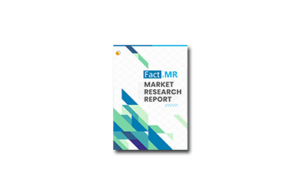Global rubber processing chemicals market expected to reach $6 billion by 2031
New York, NY – According to a study by Fact.MR, rubber processing chemicals sales experienced slow growth in 2020, closing at a little over $5 billion on account of recessionary impacts of the COVID-19 pandemic. The global rubber processing chemicals market is expected to reach $6 billion during the forecast period at a rising CAGR of 3 percent, expanding by 1.2X between 2021 and 2031.
The rising demand from the building, construction and automotive industry is expected to drive the sales of rubber processing chemicals globally. Rubber is extensively used for manufacturing belts, pipes, flooring, mats, tires and gloves. It is increasingly being adopted as it has enhanced resistance against ozone damage, mechanical stress, effects of oxygen, sunlight and heat.
Among products available, sales of rubber flame retardants will rise at a high pace. Sales of this product category will rise in response to the increasing demand for solutions to prevent tire overheating in the automotive sector.
Based on application, sales within rubber processing chemicals for tire manufacturing will account for nearly 40 percent of revenue generated in the market by 2031. Rising demand for curing systems and antiozonants is expected to be a primary cash cow, since these systems are often incorporated to prevent wear and tear of rubber tires.
Rising demand for curing antiozonants, and antioxidants systems will generate revenue, as they are increasingly demanded to prevent wear and tear of rubber tires. For instance, Brenntag SE delivers AMINOX and BLE 65 stabilizers that perform the same.
“Growing health and environmental concerns are pushing manufacturers to develop environmentally-friendly products in the market. Considering this, the market is expected to witness a slew of product launches, which will enable growth in the coming years,” said the Fact.MR analyst.
Key players operating in the global rubber processing chemicals market are investing in research and development activities to accelerate production capacities. They are also engaging in core strategies such as collaborations, and mergers and acquisitions to enhance their footprints in the market.
For instance, BASF SE offers Koresin rubber tackifier that is suitable for application in production of premium and quality tires for replacement and re-treading operations, OEMs, special vehicles, trucks and cars in the automotive industry.
Key players operating in the rubber processing chemicals market profiled by Fact.MR include BASF SE; Arkema Group; Behn Meyer Holding AG; China Petroleum & Chemical Corporation (SINOPEC); Eastman Chemical Company; Emerald Kalama Chemical LLC; Emery Oleochemicals Group; Kumho Petrochemical Co. Ltd. (KKPC); Lanxess AG; Merchem Limited; and Sinochem Group Co. Ltd.

